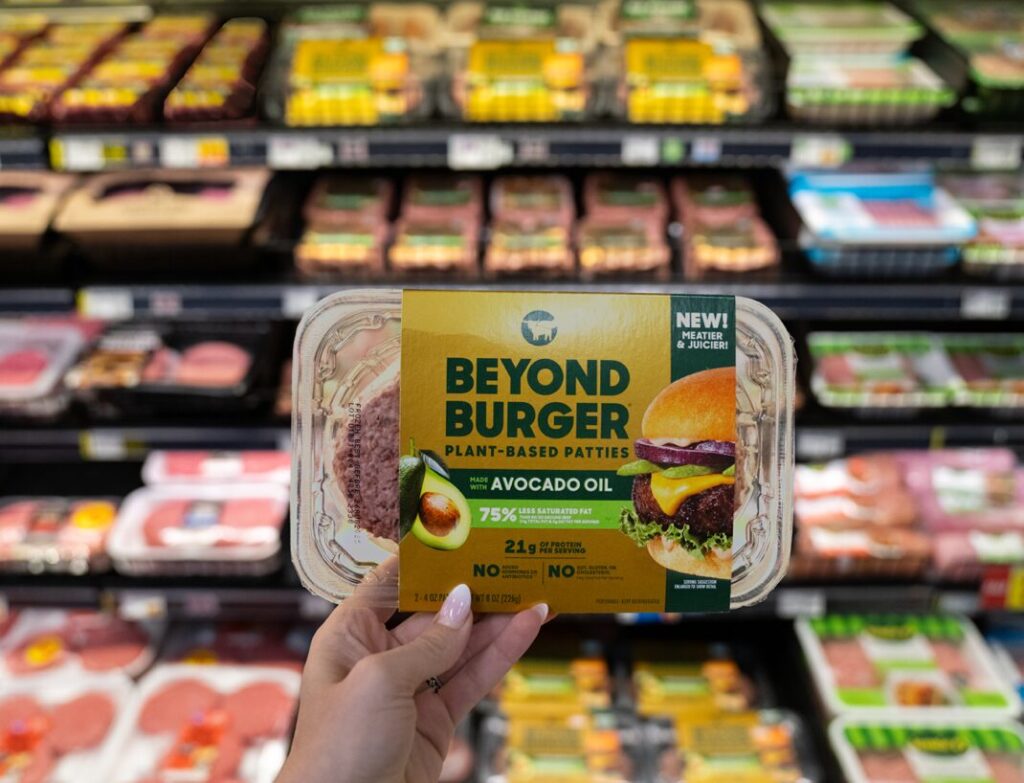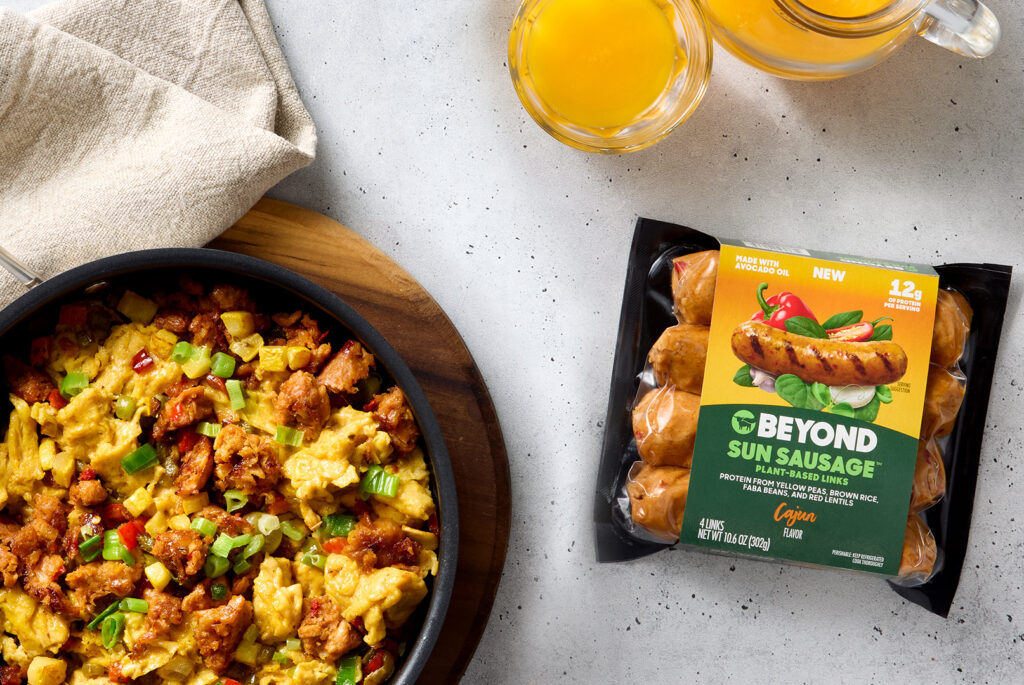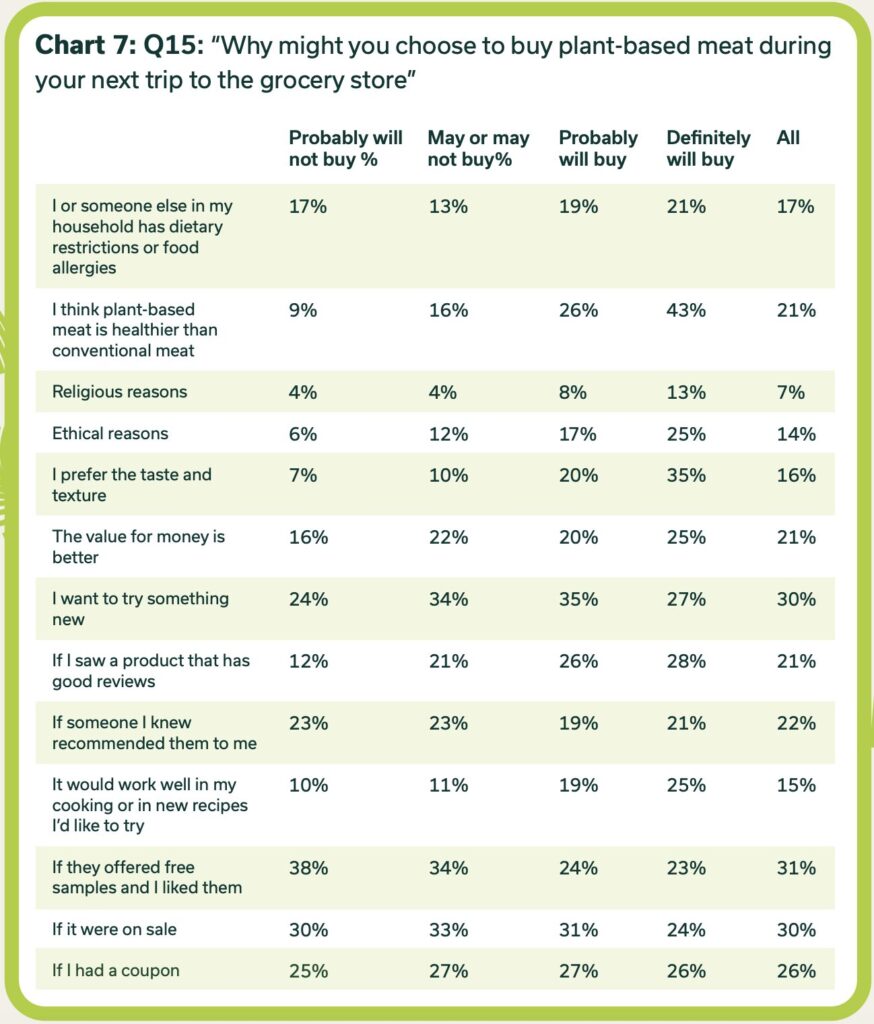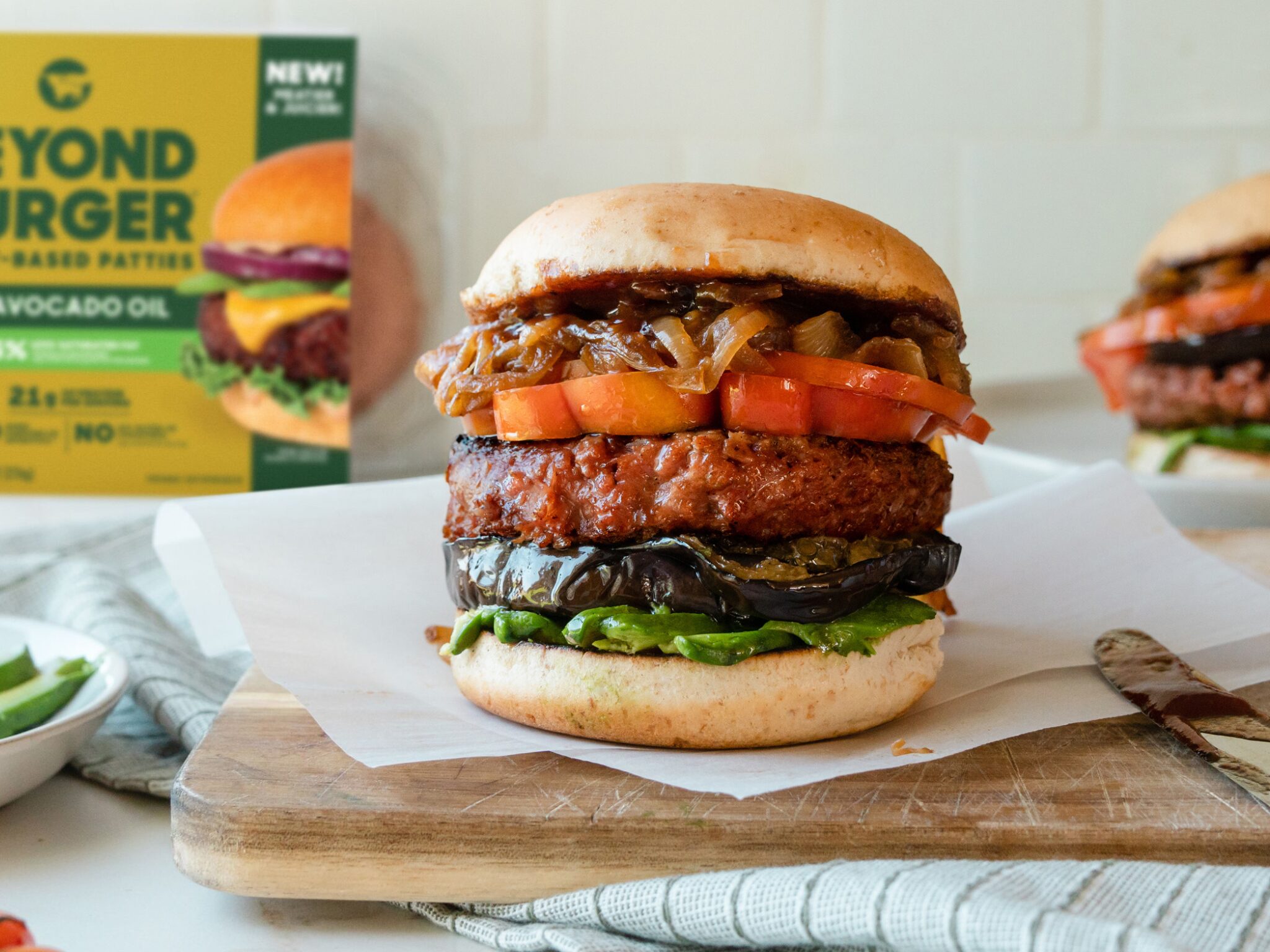Beyond Meat Cuts Costs, Raises Prices to Boost Margins and Revenue Expectations in Q2 2024
7 Mins Read
Amid a wider decline in plant-based meat sales, Beyond Meat’s new pricier lineup has delivered better profit margins in Q2 and an improved sales forecast for the rest of 2024.
Despite a ninth consecutive quarter of year-on-year revenue declines, Beyond Meat’s sales in Q2 2024 beat Wall Street’s expectations, as well as its own.
The Californian plant-based meat giant reported revenues of $93.2M in the April-June period, higher than the $87.8M forecast by analysts, and above the $85-90M guidance the company outlined in the previous quarter.
However, the softening demand for plant-based meat – something CEO Ethan Brown ascribed to a “sustained misinformation campaign championed by members of the incumbent animal protein industry” – has seen overall sales dip both in the US and internationally.
Compared to the same period a year ago, Q2 revenues were down by 8.8%, which was driven by a 14% decrease in the volume of products sold. But the higher prices of the Beyond IV line of products and the new $10 Sun Sausages helped increase net revenue per pound by 6.1%. Meanwhile, sales were up by 23% compared to the first quarter of 2024.
Perhaps the most notable finding on Beyond Meat’s Q2 earnings report was the improvement in its gross margin, which, at 14.7%, was significantly higher than the 2.2% margin from the same period last year and the 4.9% figure in Q1 2024. The company expects to see more progress on this front over the course of this year.
Beyond Meat CEO ‘bullish’ about Germany market

In its home market, Beyond Meat saw year-on-year revenue fall by 7.5% in the retail sector, although per-pound revenue hiked by 20.5% as the Beyond IV beef mince, burger and sausages rolled out at supermarkets nationwide.
But higher trade expenses related to some of the company’s larger restaurant partners meant the price changes didn’t have as high an impact on foodservice, where revenue dipped by 19% from the same period a year ago.
The declines in both channels primarily reflected the “ongoing demand softness in the plant-based meat category”, according to Beyond Meat COO Lubi Kutua. Circana data shows that US retail sales of chilled meat analogues slumped by 19% in the 52 weeks ending May 19, 2024, alongside a 21% decline in volume.
Speaking of which, the alternative protein giant is betting on the refrigerator to turn its European fortunes around. The weak performance of its vegan chicken in the EU the main culprit behind the 12% drop in international retail sales, compounded by slowing demand in certain markets.

In a conference call with investors, Kutua explained that the company’s success in EU retail is “much less about market share gains and much more about distribution expansion”. This will be driven by its expansion in Germany, where Beyond Meat “essentially had no access to the refrigerated aisle”.
More than 95% of the German plant-based meat category is in the chilled section of supermarkets, but Beyond Meat’s products did not meet the refrigerated shelf life requirements in this market (or some others), until a recent reformulation.
“I’m very bullish on Germany. I think it’s a terrific plant-based market. It’s… one of the top in the world. And so I think you’ll see us be aggressive there,” said Brown.
Germany is also the site of the McDonald’s meals promotion, which features the McPlant burger in menus curated by Tokio Hotel members and twins Bill and Tom Kaulitz. Such promotions likely helped keep its international foodservice losses down, with revenue only decreasing by 2.5% in Q2 2024 compared to April-June 2023.
Debt-laden Beyond Meat settles false marketing lawsuit
The El Segundo-based company cut its net losses by nearly 36% from a year ago (reaching $34.5M), largely thanks to reduced marketing spend and non-production salaries driving down operating expenses. It represents one of Beyond Meat’s top five priorities for this year, which aimed to bring production in-house as part of its cost-cutting strategy.
“This consolidation is enabling us to benefit from better asset utilisation and inventory management, which we expect to continue freeing up working capital, aiding overhead absorption, and generating production and logistics efficiencies, while also providing for better management of logistics and quality control,” Brown said in the Q2 earnings call.

The company’s operating expenses were also 40% lower in Q2 than the preceding quarter, when it settled a class-action lawsuit for $7.5M. Brought by six consumers who alleged it had overstated its products’ nutritional benefits, since the protein digestibility of its meat analogues was lower than that of conventional meat.
Beyond Meat denied the allegations of “false and misleading claims” and “deceptive business practices”, but has now put the matter behind, with the sum providing “immediate, certain, and substantial” relief through partial refunds to customers.
The company is still $1.1B in debt, and reportedly has been in talks with bondholders to restructure its debt, according to the Wall Street Journal. “We are trying to drive this business to cashflow-positive operations as quickly as possible,” said Kutua, but that isn’t expected this year.
Beyond Meat’s efforts to enhance its financial performance is evident in the fact that so far this year, its net losses amount to $89M, 21% lower than the first six months of 2023. The business has now also updated its revenue guidance for the year from $315-345M to $320-340M.
A plant-based meat maker, or a health company?
The plant-based meat maker’s health pivot over the last year has been well-documented, starting with its Beyond Steak and Beef Lite SKUs becoming certified as heart-healthy by the American Heart Association (AHA) last year. This was followed by the Beyond IV lineup, which swapped coconut and canola oils for avocado fat, and added fava beans and red lentils to the ingredient list.
And then there are the new Sun Sausages, which aren’t intended to mimic meat, but instead present vegetables, legumes and whole foods in a new way.

All this has been very intentional, with Beyond Meat looking to blur the lines between veganism and health. “I believe it will be arguable whether Beyond Meat is, at its core, a plant-based meat company that delivers health and wellness, or a health and wellness company that makes plant-based meat,” said Brown.
A survey by the International Food Information Council found that 55% of Americans eat meatless diets out of health concerns. And a similar poll by Kroger-owned research firm 84.51° in May revealed that health is the most important driver of plant-based meat consumption in the US. But the latter also showed that the cost of meat analogues is prohibitive for 53% of Americans, driving them to eat less of it.
“The main thing that destabilised this category has been the misperception around health,” said Brown. “Obviously, there have been some pricing issues… which in a recessionary or difficult economic environment are always more challenging. But we are hammering away at the single most important issue in our view that is required to get the entire category growing again. The early results we’re seeing from Beyond IV suggest that we’re on to the right strategy.”
He added: “I do not expect consumer perception to shift quickly and certainly not overnight. However, I do believe it will change and this change is being aided by the increasing number of highly credible doctors, registered dietitians, and nutritionists who are coming out in strong support of our Beyond IV products.”
That said, the cost is equally important, and Brown knows it. “Over time, we’ll continue to address price and in some regards, if you look at certain products with certain customers in certain regions, we have already achieved an element of price parity,” he said. “But that right now is not the most important factor to consider.”

But across the globe, the thing that will really attract more consumers is superiority in taste and texture. According to one survey, only 16% of Americans say these sensory factors drive them to buy meat analogues in the grocery store.
“We wouldn’t launch something that we felt did not represent an increase in the organoleptic or sensory experience of the product. That’s not something we’d want to do. And so in particular, the shift to this protein blend dealt with some of the off flavours,” said Brown. “The use of avocado really helped with some of the flavour notes, as well as the health and a bunch of other changes were made.”
He added that the reaction to the Beyond IV products has been strong, and reiterated the company’s claim that taste tests prior to the range’s introduction indicated an improvement on flavour. “We don’t need everybody to like the product,” the CEO pointed out. “We need enough people to like it.”



